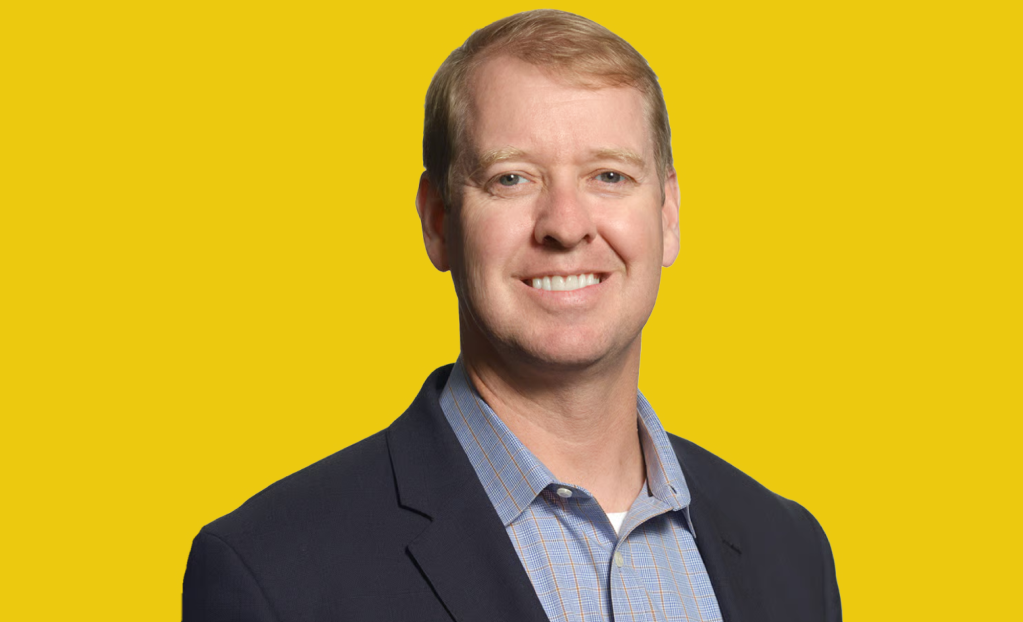Career advice from the farmer’s son leading sustainability at KFC, Pizza Hut and Taco Bell
Yum!’s sustainability chief Jon Hixson meets with the board every quarter, which helps keep his strategy front of mind. Read More

- Yum!’s global team sets corporate strategy, but lets brands prioritize how to act on them.
- Priorities: Local sourcing policies and multi-year commitments that bring consistency.
- Advice for early-career sustainability professionals: Take risks, and get operational experience.
Yum! Brands’ lead sustainability executive, Jon Hixson, grew up on a Kansas farm and cultivated a career in agriculture before pivoting to 10 years on Capitol Hill then leaping to a private-sector role in public affairs at Cargill in 2005. There, he interacted with hundreds of small-holder farmers across Asia, working on sourcing policies for coconut oil and palm oil.
Hixson encourages early-career sustainability professionals to seek a similar diversity of perspectives with their career choices, especially roles in which they must manage a budget, even if that’s counter to their instincts. It’s important to “walk in the shoes” of those who will be affected by your company’s emissions reductions and climate strategies because it encourages more practical approaches, he said.
“It can be kind of a buzzkill, if you’re coming right out of college and want to storm the beachhead,” Hixson told me in the latest episode of Climate Pioneers.
“I kind of always remind [mentees] that it’s helpful to try to work in a business unit, try to own a P&L, try to understand what the operational reality is like,” he said. “You will be better able to drive change when you do have that understanding and appreciation.”
Quarterly board meetings
Hixson offers an example from his own experience as chief sustainability officer and vice president of global government affairs for Yum!, a position he has held since May 2017, reporting to the company’s general counsel.
When Hixson joined Yum!, he met with the board of directors on an annual basis for what amounted to a historical review. That changed three years ago, alongside the rise of environmental, social and governance regulations and related compliance concerns. Now, he’s asked to offer quarterly updates on the company’s science-based emissions reduction targets, validated in April 2021, along with evolving plans to address them.
“I think the board really wanted to know — what’s our ongoing strategy and where are the pain points?” Hixson said.
Harmonized strategy, brand-centric execution
Yum!’s corporate sustainability function is structured as a “center of excellence” that sets and stewards companywide goals, manages reporting and disclosure about progress and finds ways to scale and share best practices from brand-centric initiatives.
Here’s a rundown of Yum!’s 2030 targets, and current progress as of 2024:
- Reduce the footprint for its operations (Scope 1) and electricity consumption (Scope 2) by 46 percent by 2030. So far, it has managed a 25 percent cut, which put it on track.
- Cut franchise energy emissions by 46 percent on a per-restaurant basis. Its current status is 30 percent, well on the way.
- Slash per-metric ton emissions related to packaging and sourcing beef, poultry and dairy by 46 percent. It’s behind on this goal, with a 1 percent reduction as of the latest environmental report.
The baseline year for all of these commitments is 2019.
It’s the responsibility of brand leads — who report to division heads with a dotted line to the global sustainability officer — to translate those goals into ones that will be most impactful within their own business.
At Pizza Hut, for example, there’s a big focus on new approaches for sourcing cheese and other dairy products. KFC is leaning into investments such as optimized exhaust hoods and other kitchen upgrades. Taco Bell is prioritizing beef, through regenerative agriculture initiatives.
Brands are best able to translate the essence of the larger goals into operational elements that dovetail with their mission — and with consumer preferences, which are different for each fast casual restaurant chain, Hixson said: “I always say we’re trying to do things that work from Virginia to Vietnam.”
The ‘invisible hand’ of sustainability
One less-public-facing function of Yum!’s global sustainability team is shepherding “invisible hand” programs, such as the company’s long-standing initiative to identify equipment and technology that reduces energy consumption at restaurants.
The program started when more than 30 percent of Yum!’s locations were company owned. Now, 98 percent of its roughly 61,000 locations are franchised, but Yum! still selects what owners and managers are allowed to buy when it comes to food preparation, or heating and ventilation, which both reduces costs and energy-related emissions. These systems are mandated for new owners or for locations undergoing renovations, one way Yum! ensures that sustainability practices are embedded into operations.
“Sometimes there’s a silent hand of sustainability and a more visible hand of sustainability,” Hixson said.
What makes the business case
When it comes to pitching the finance team on investments for sustainability initiatives, Hixson focuses on three things:
- Prioritizing local strategies for sourcing chicken, beef and other proteins served at its restaurants. In 2024, for example, KFC convened an inaugural summit with poultry suppliers to discuss impacts related to soy, a common ingredient in chicken feed. Elsewhere, close to 90 percent of beef is sourced from regions with a lower risk of deforestation.
- Choosing initiatives that have longevity. “Most of the places where we do our engagements, especially with partners and suppliers, involve multi-year commitments that allow you to learn, innovate and build that value over time,” Hixson said.
- Articulating how Yum!’s investments affect the unique environmental challenges specific to each market. The team asks: “What can we do to work within a jurisdiction, in a landscape, to drive broader change.”
Reflecting on his own experience, Hixson said one of the biggest mistakes a sustainability professional can make is failing to thoroughly socialize ideas with others — including co-workers, colleagues and consumers — before moving forward with a new metric or program.
“I always say that I have kindergarten rules for corporate success,” he said. “Which is, work hard, think before you act and play well with others. Where I’ve seen people get into trouble is where you don’t do one of those elements.”
















